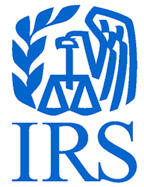 IRS News:
IRS News:
PHOENIX – The Internal Revenue Service (IRS) recently warned taxpayers about groups masquerading as charitable organizations to attract donations from unsuspecting contributors.
“When making a donation, taxpayers should take a few extra minutes to ensure their hard-earned money goes to legitimate and currently eligible charities,” IRS Commissioner John Koskinen said. “IRS.gov has the tools taxpayers need to check out the status of charitable organizations.”
Phony charity organizations are included the IRS “Dirty Dozen” list for the 2015 tax filing season. Compiled annually, the “Dirty Dozen” lists a variety of common scams that taxpayers may encounter anytime, but many of these schemes peak during filing season as people prepare their returns or hire someone to prepare their taxes.
Illegal scams can lead to significant penalties and interest and possible criminal prosecution. IRS Criminal Investigation works closely with the Department of Justice to shut down scams and prosecute the criminals behind them.
The IRS offers these basic tips to taxpayers making charitable donations:
- Be wary of charities with names similar to familiar or nationally known organizations. Some phony charities use names or websites that sound or look like those of respected, legitimate organizations. IRS.gov has a search feature, Exempt Organizations Select Check (http://www.irs.gov/Charities-&-Non-Profits/Exempt-Organizations-Select-Check), which allows people to find legitimate, qualified charities to which donations may be tax-deductible.
- Don’t give out personal financial information, such as Social Security numbers or passwords to anyone who solicits a contribution. Scam artists may use this information to steal identities and money. People use credit card numbers to make legitimate donations but please be very careful when speaking with someone who called.
- Don’t give or send cash. For security and tax record purposes, contribute by check or credit card or another way that provides documentation of the gift.
Impersonation of Charitable Organizations
Another long-standing type of abuse or fraud involves scams that occur in the wake of significant natural disasters.
Following major disasters, it’s common for scam artists to impersonate charities to get money or private information from well-intentioned taxpayers. Scam artists can use a variety of tactics. Some scammers operating bogus charities may contact people by telephone or email to solicit money or financial information. They may even directly contact disaster victims and claim to be working for or on behalf of the IRS to help the victims file casualty loss claims and get tax refunds.
They may attempt to get personal financial information or Social Security numbers that can be used to steal the victims’ identities or financial resources. Bogus websites may solicit funds for disaster victims.
To help disaster victims, the IRS encourages taxpayers to donate to recognized charities.
If you are a disaster victim with specific questions about tax relief or disaster related tax issues, call the IRS toll-free disaster assistance at 866.562.5227.

